
Doctor Reveals 10 Signs You're Having An Anxiety Attack
When you think of anxiety attacks, it's not just freaking out and breathing into a paper bag to calm yourself. Sometimes an anxiety attack manifests as something arbitrary like a stomach ache!
We've all experienced anxiousness, feeling uneasy about starting at a new job or school. But suppose you constantly worry about normal everyday tasks, like talking to others in new spaces. In that case, it could be a symptom of one of the many types of anxiety. A licensed therapist should always be a person who guides you and diagnoses you regarding your mental health. Still, there is a vast amount of information and resources that can help you learn to cope with anxiety and help you find the necessary help if you feel overwhelmed with fear.
An anxiety attack is different from a panic attack, but the symptoms are similar. A panic attack is sudden, caused by an overwhelming fear of a stressful task like an exam, and most people end up crying uncontrollably and having difficulty breathing! An anxiety attack happens over a more extended period, symptoms can be present for hours to days, and you might not even be able to pinpoint the one thing causing it. It's important to be aware of anxiety symptoms if you or someone around you is experiencing discomfort, so you can help understand your symptoms and seek out the help you need.
1 Your Heart Feels Like Its Racing

Unsplash Fabrizio Verrecchia
Sometimes you get excited or surprised, and you can feel your heart beating out of your chest, like the thrill going down a roller coaster. Usually, that feeling passes, and you're free to go about your day. But when you have an anxiety attack, you can notice your heart racing, and you might not know the reason why, but the rush of blood pumping through your ears is distracting.
When you have that experience, take a moment away from everything instead of trying to push through, and try something relaxing to calm your heart. A simple breathing exercise or even meditation can help you slow your heart-rate down. If you're someone who has been diagnosed and has access to medication, then you should use it as instructed by your health professional.
2 The Shakes
While it would be great to use your trembling hands to mix a cocktail, your body usually trembles in a state of panic or shock. Feelings of anger or fear often leave you shaking; this is because your body is in a state of the fight-or-flight response, hormones like adrenaline and cortisol are responsible for this shaky response.
If you're in a constant state of anxiousness, your hormones are constantly in a state of fight-or-flight; without a release of these hormones leads you will stay shaky. That's why anxiety medications aim to target hormones to calm you down and give you a sense of security, so you don't feel like you're fighting for your life when ordering a cheeseburger at the cashier!
3 Sweating
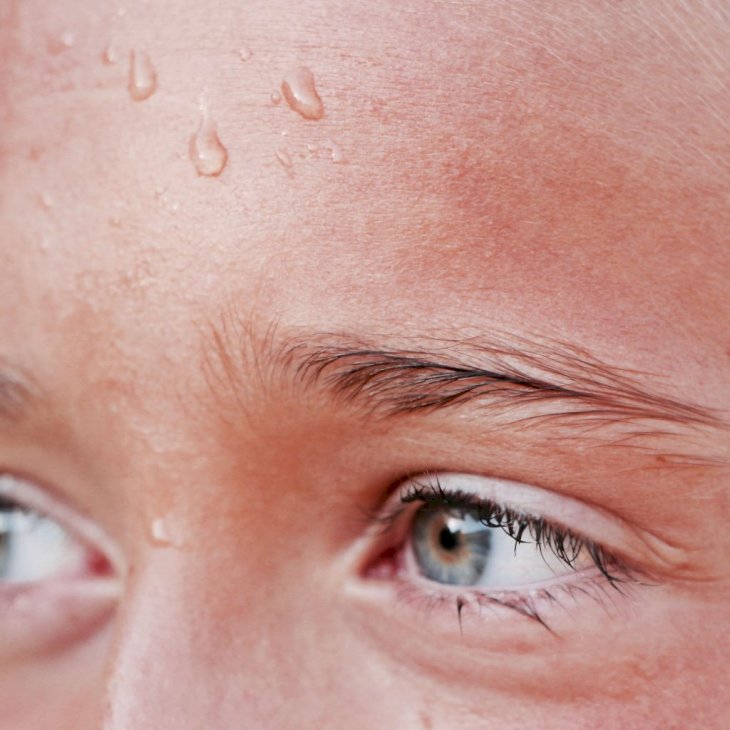
Unsplash by Hans Reniers
As a response to the high volume of hormones circulating through your body, you're going to sweat, even if you're cold! You might chalk it off to something like the weather or wearing a sweater in warmer weather, but it's actually nerves. Just like when you talk to someone you really like and have to wipe your hands down because your palms are sweaty!
If you feel like there's no reason you should be sweating, especially if it's colder or your crush isn't around, try your best to figure out if anything could be causing you to feel overwhelmed, then take the correct measures to address the issue. Even if it means seeing a mental health professional because, after all, anxiety isn't something you should be ashamed of!
4 Pain
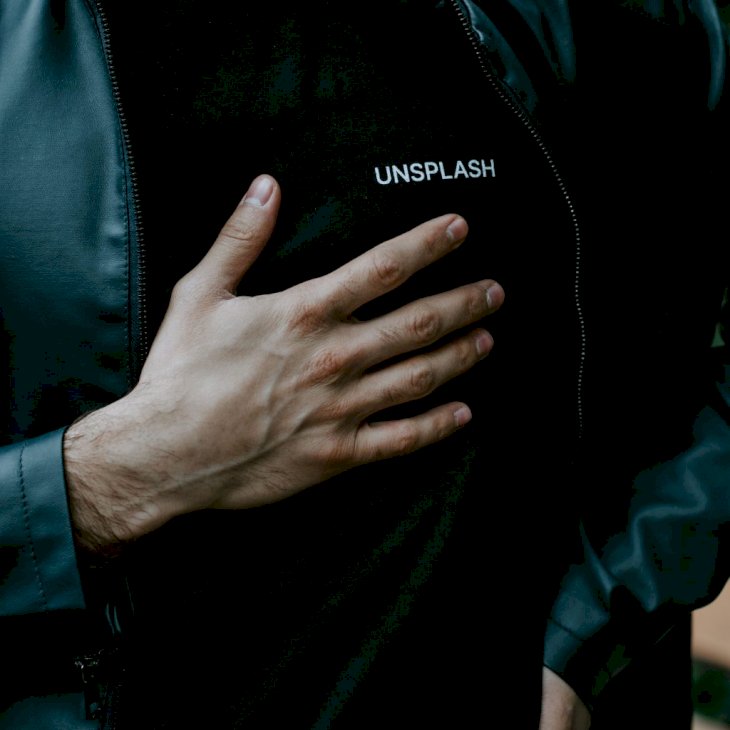
Unsplash by Ashkan Forouzani
Pain, especially in your chest, is a common physical symptom of anxiety. This can be really scary because your mind is going 100 miles a minute trying to figure out if this is how it ends! Chest pain is a serious symptom. If you're talking to a doctor, they have to take it seriously because it could be a heart attack, and even if it isn't, your doctor might run tests to rule one out.
If anxiety is the cause of the chest pain, luckily, it's no cause for major concern. You should be concerned as chest pain is not something you want to live every time you feel stressed out. Stress is a killer. If you're constantly experiencing pain and a racing heart as a symptom of an anxiety attack, you could be causing strain on your most vital organ, which could lead to a serious heart condition. So please utilize the available resources to manage your stress and anxiety as it's critical for not only your physical health but your overall wellbeing!
5 Stomach Issues
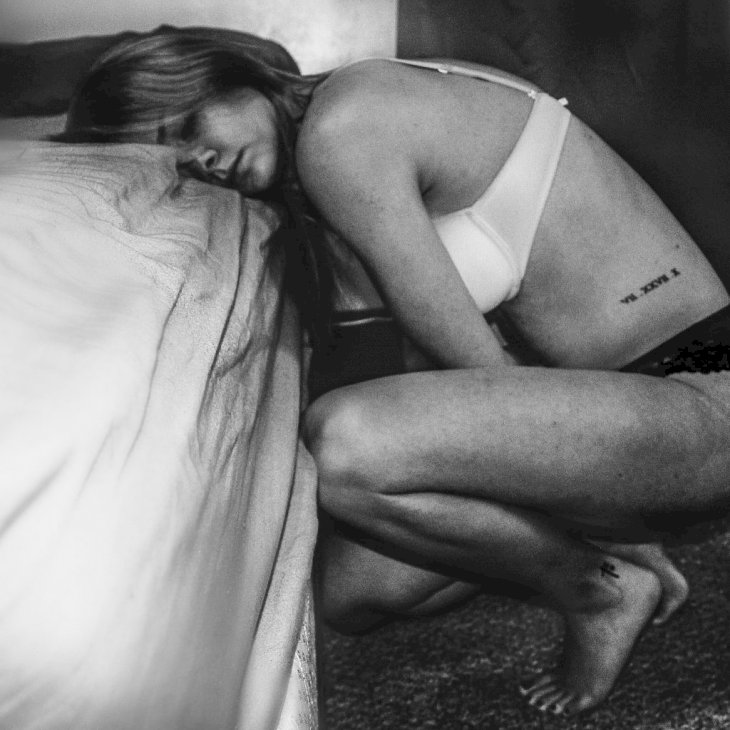
Unsplash by Sydney Sims
Nerves can have you feeling like you've got butterflies in your tummy, like the feeling you get before the big drop on a roller coaster ride. People with anxiety disorders experience various gastrointestinal issues, like stomach aches, nausea, indigestion, or diarrhea. Yes, anxiety could be the reason you're constantly running to the loo!
Your fight-or-flight hormones are responsible for these issues, and even though there are many medications you can take to treat the symptoms you're experiencing, the best way to treat the issue is by dealing with the anxiety. So talk to your doctor, there could be a reason you feel nauseous when you're stressed out, and there might be a specific method you use to calm yourself that helps you not feel nauseated.
6 You Can't Catch Your Breath
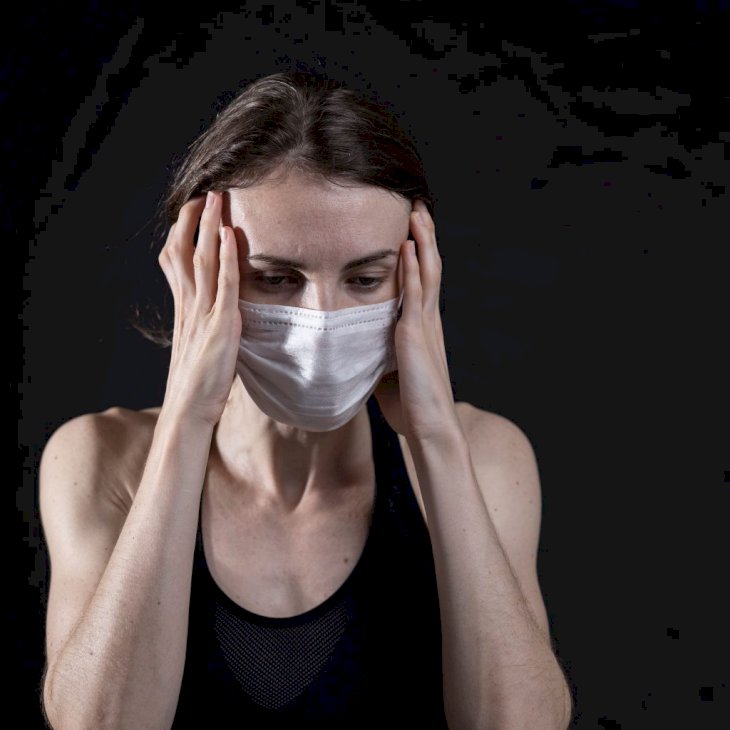
Unsplash by engin akyurt
Just like during a panic attack, you may find it difficult to catch your breath when dealing with stress. Instead of taking normal deep breaths, your breathing becomes rapid. When this happens, instead of allowing the natural circulation of oxygen, you're not allowing the carbon dioxide to fully leave your airway and end up breathing it back in. While you struggle to meet your body's oxygen requirements, your body will soon start feeling the lack of oxygen and have to respond, which is why symptoms like a racing heartbeat and even dizziness is experienced.
With shortness of breath causing major concern in light of the current pandemic, as it's a severe symptom of the coronavirus, this can be a worrying symptom. The main difference between shortness of breath as a symptom of anxiety versus coronavirus symptom is that with anxiety, it will pass in a moment, but with covid, patients end up suffering for days, even months!
7 Dizziness
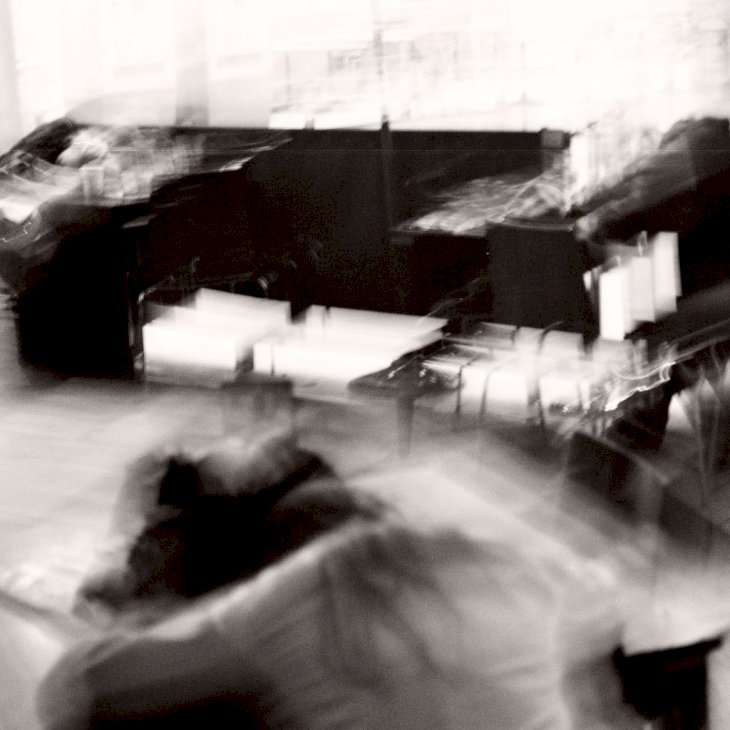
Unsplash by Radvilas Seputis
Naturally, during periods where your fight-or-flight response is triggered, your body uses more energy, and being in a constant state of anxiousness is taxing on the body! So as you get tired you might feel dizzy, when this happens try and sit down as soon as possible in case you faint, because if you fall down, you may hurt your head.
When your breathing is rapid, your natural oxygen circulation is disturbed. Your body now has to try and circulate the oxygen you're able to breathe around your body to reach vital organs like the brain. Because most of your blood is focused on supplying the brain, the rest of your body may not get enough oxygen, and this could lead to you fainting. That's why it's crucial to get your breathing under control as soon as possible; you could be seriously injured if you faint.
8 Tingling

You might have a feeling of TV static or tingling in your hands and legs; these are the extremities that are barely supplied with blood when your body is compensating for the lack of oxygen around the body. To get rid of the tingling, practice the breathing techniques to slow down your breathing and get it under control to feel better.
9 Rashes

If every time you get stressed out, you notice red flares around your body, you could be experiencing an anxiety attack. High cortisol levels in an anxious state can cause inflammation, and that's why you break out in a rash on your body. It can be distracting and worry you further because you might think it's an allergic reaction. You can use an antihistamine or a cold compress to help out with any worries.
10 Cottonmouth

Unsplash by Damir Spanic
This common symptom of anxiety happens if you're breathing with your mouth open but can also be caused if you suffer from acid reflux frequently. There's nothing else for you to do but drink as much water as you need! And if that's not enough, then drink some more!
If you experience one or more of these symptoms, please go through channels to help you better cope with stress and anxiety; maybe it's seeing a therapist, perhaps it's joining a group, whatever you choose should be for the benefit of your wellbeing. Heck, you might not even experience any of these symptoms but still suffer from anxiety, and in that case, you should still go through the channels! There's no better cure than prevention!